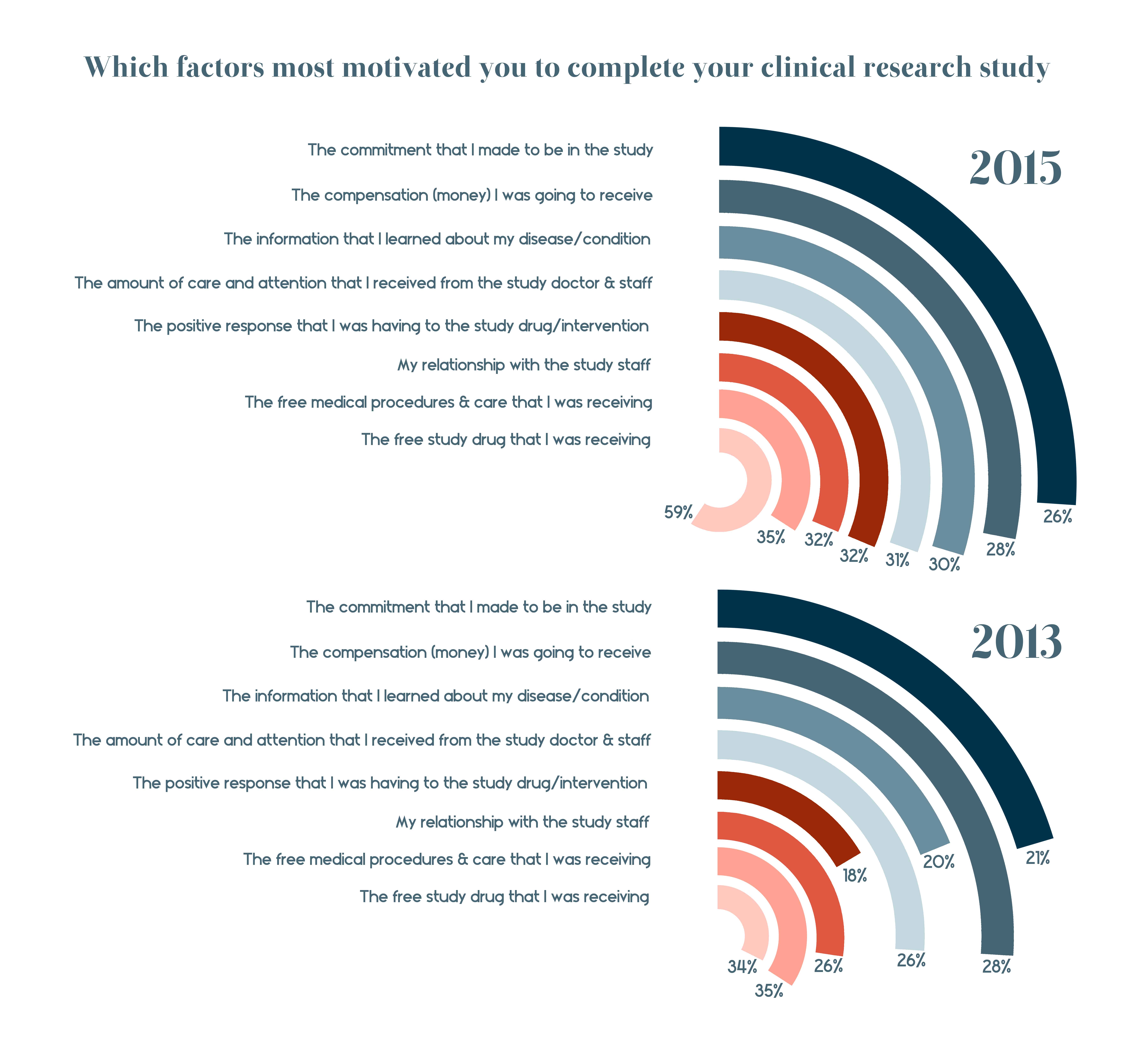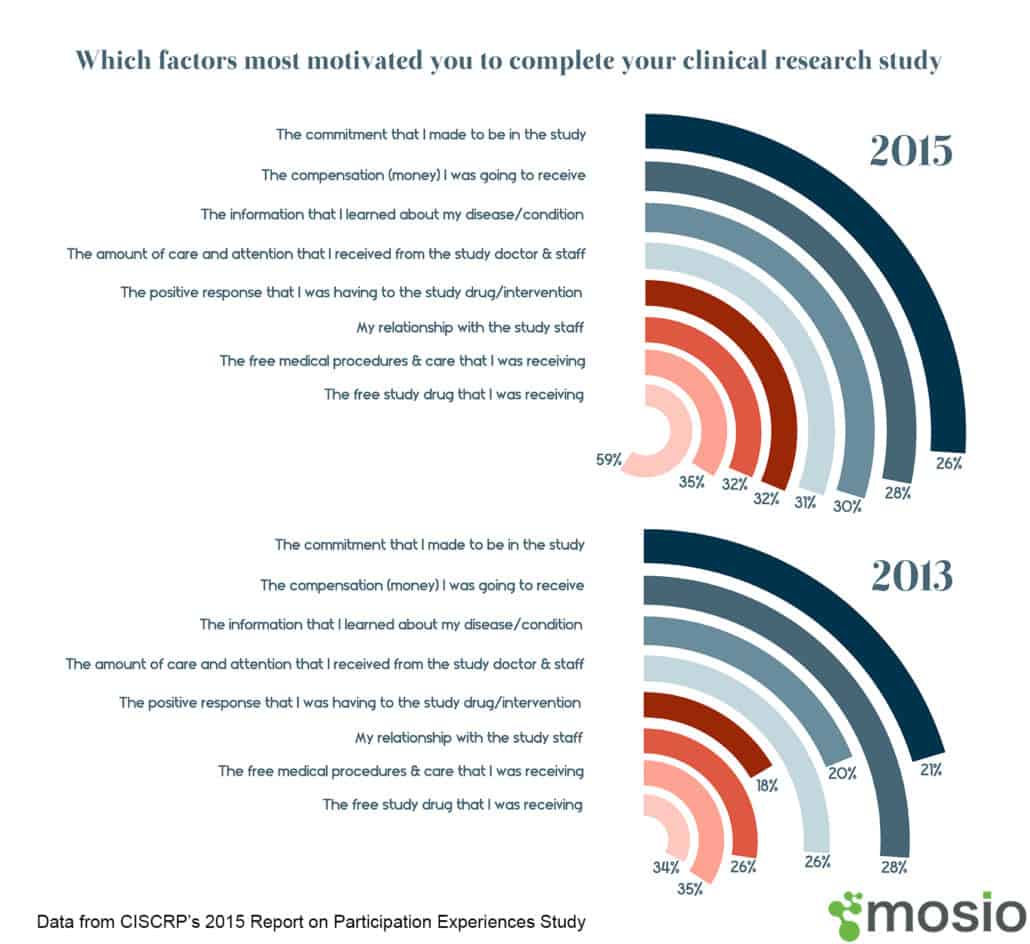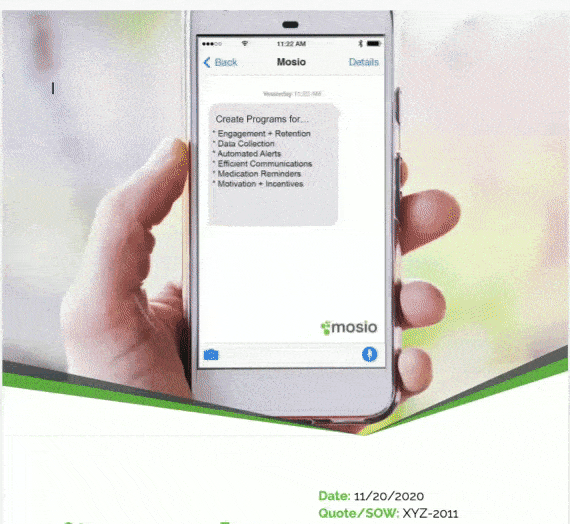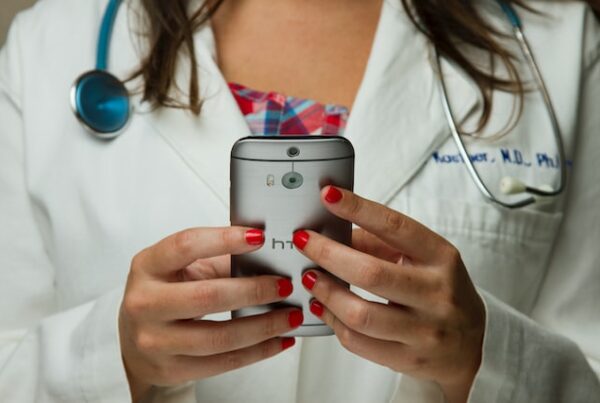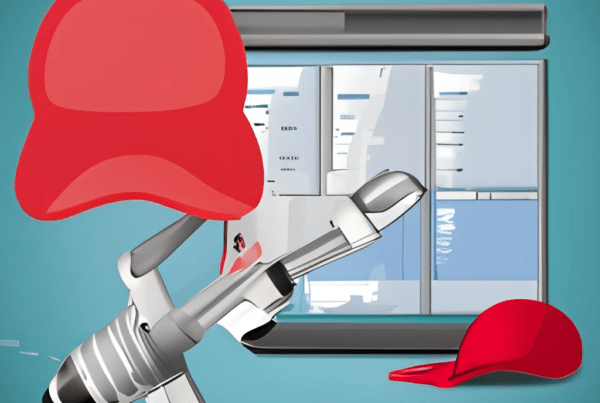The Center for Information and Study on Clinical Research Participation (CISCRP) recently published their 2015 Perceptions and Insights Study. This study of over 12,000 research participants is “the largest global assessment of clinical research attitudes, perceptions, behaviors and experiences among the public and patients ever conducted.” Thus, we believe these results are solid, shed a lot of light on patient behavior in clinical trials, and provide insight into getting patients to complete clinical trials.
The chart that catches our attention most is the comparison of “Which Factors Most Motivated You to Complete your Clinical Research Study” between the 2013 and 2015 years, shown above. Each of these reasons motivate patients to complete clinical trials. We’ve taken it a step further and have offered 6 ways text messaging can improve each of these areas listed, engaging and retaining clinical research participants.
1) Committing to be in the study
(Appreciation Messages)
In order to get patients to complete clinical trials, the patients must commit to the study for the long haul. This is the biggest motivator for patients, as seen in the findings. Sending study participants text messages thanking them for their participation and commitment to stay in the study can go a long way to letting them know how important they are. Automated messages are extremely simple to set up and will go a long way in improving commitment to your study.
2) Receiving compensation
(Incentives Delivery and Notifications)
While compensation should not be the main driver for participating in a clinical trial, we understand it is a nice bonus and motivator for patients who volunteer for your study. Text messages can be a great way to notify or deliver incentives to patients for a desired action, such as a study site visit, completion of a survey, etc. If you’re already communicating with them via two-way text messaging during the study, delivering this information is a natural fit.
3) Learning information about disease/condition
(Patient Newsletters)
If patients are able to continue learning about their diseases or conditions, they are much more likely to complete clinical trials. Text messaging is a magnificent tool to use for learning. One-sentence tidbits of information, links to articles or videos can be sent instantly and automatically to provide them with information on-the-go. Your patients will feel more empowered when they know more about their conditions. You can use URL shortening services like bitly to track the link clicks and see what information generated the most interested.
4) Receiving care and attention from the study staff
(Two-Way “TextChat” Text Messaging)
Patient-centricity is a big buzzword in clinical trials, but many Sites are still trying to find out the best way to get started. One way is to communicate regularly with patients using the methods they prefer. With text messaging being the most utilized feature on a mobile phone, it’s a natural fit!
5) Relationship with the study staff
(Automated Coordinator Check-Ins)
Building relationships with patients during clinical trials is key. Automated coordinator check-ins can be a great way to send regular messages without a coordinator needing to remember to send them. For an added personal touch, when texting patients, use the name of a staff member. For example, “Hello! This is Amanda from Dallas Clinical Research. How are things going? Please reply or call me here if you have questions.” Making the texts personal shows that specific members of your staff are providing attention to your patients. Your patients will feel cared for even when they are away from your site.
6) Receiving free medical procedures and care
(Appointment Reminders)
As part of a clinical trial, medical procedures that the patient would not routinely receive are are often performed. For example, full-panel blood work, EKGs, blood pressure readings, etc. are performed. If a special procedure is coming up, send an appointment reminder via text message. Not only will patients feel more prepared, but they will be reminded they are receiving care at their next visit.
Conclusion
91% of mobile users have their phone within arm’s reach 24/7. In addition, 90% of mobile phone users read their texts within 3 minutes. This technology is well-used and well-liked by the majority of the population, making it the perfect way to engage clinical trial patients.
—
Want to learn more? Join the Patient Recruitment and Retention (PR+R) Group on LinkedIn!
Get a quote for Mosio’s patient engagement solutions.


